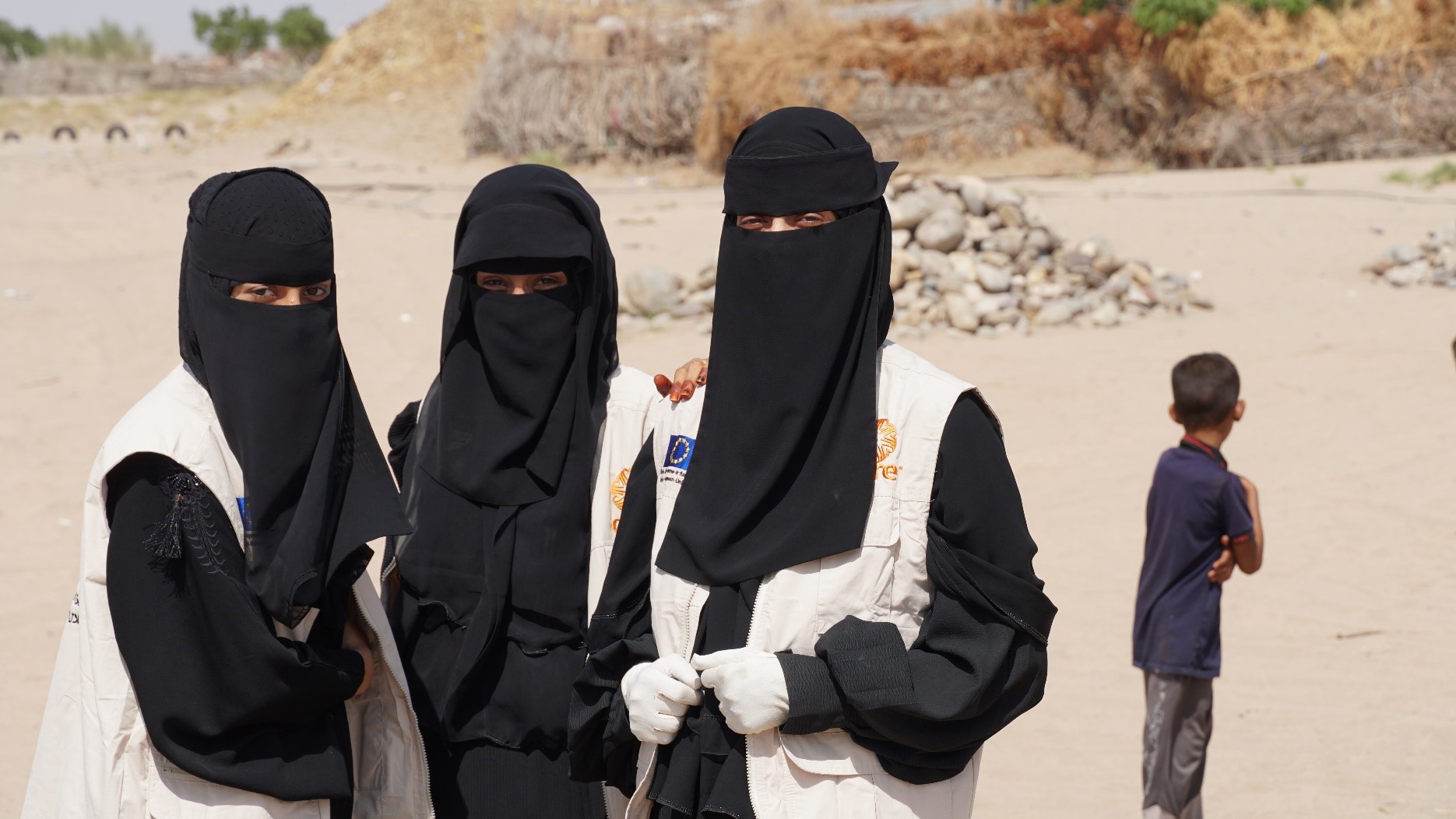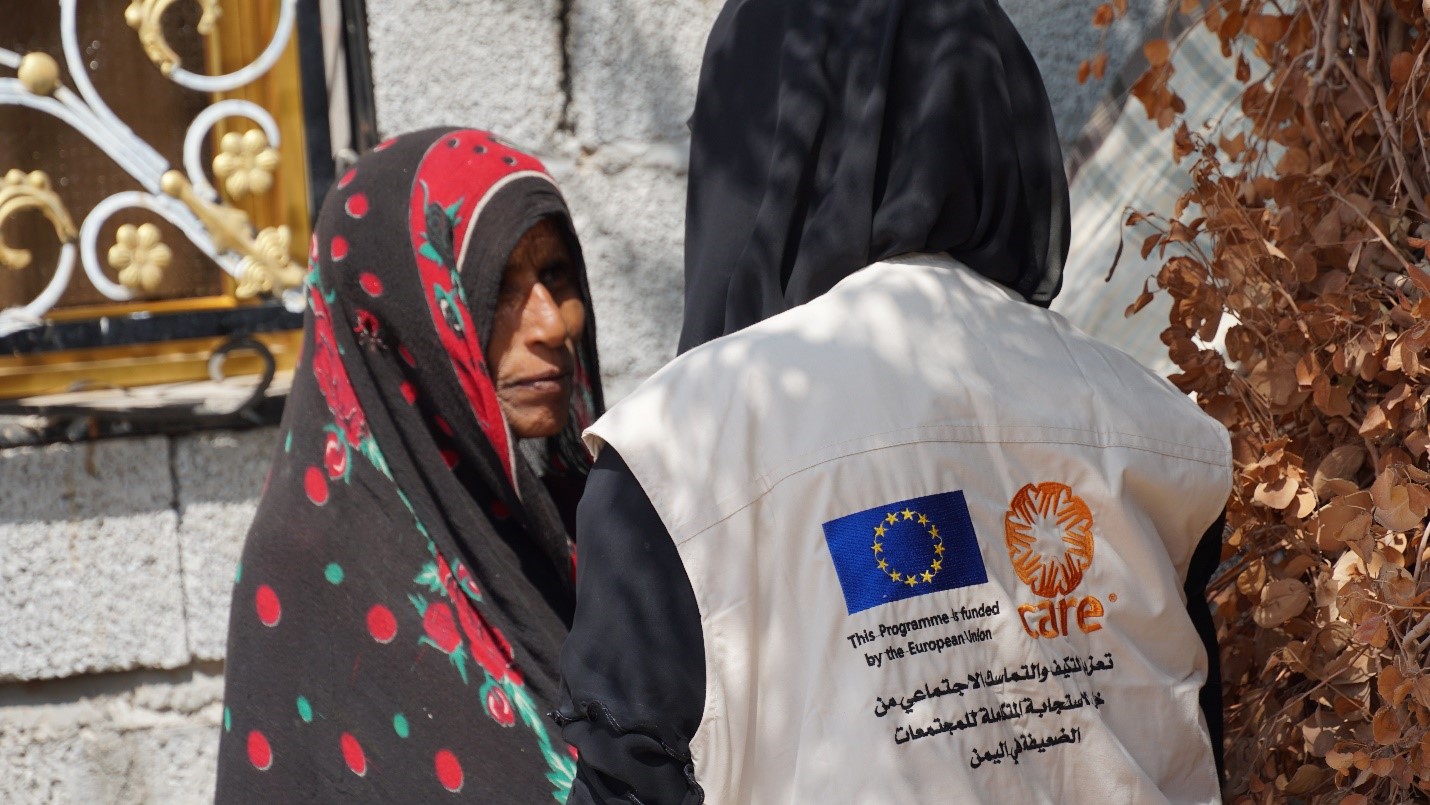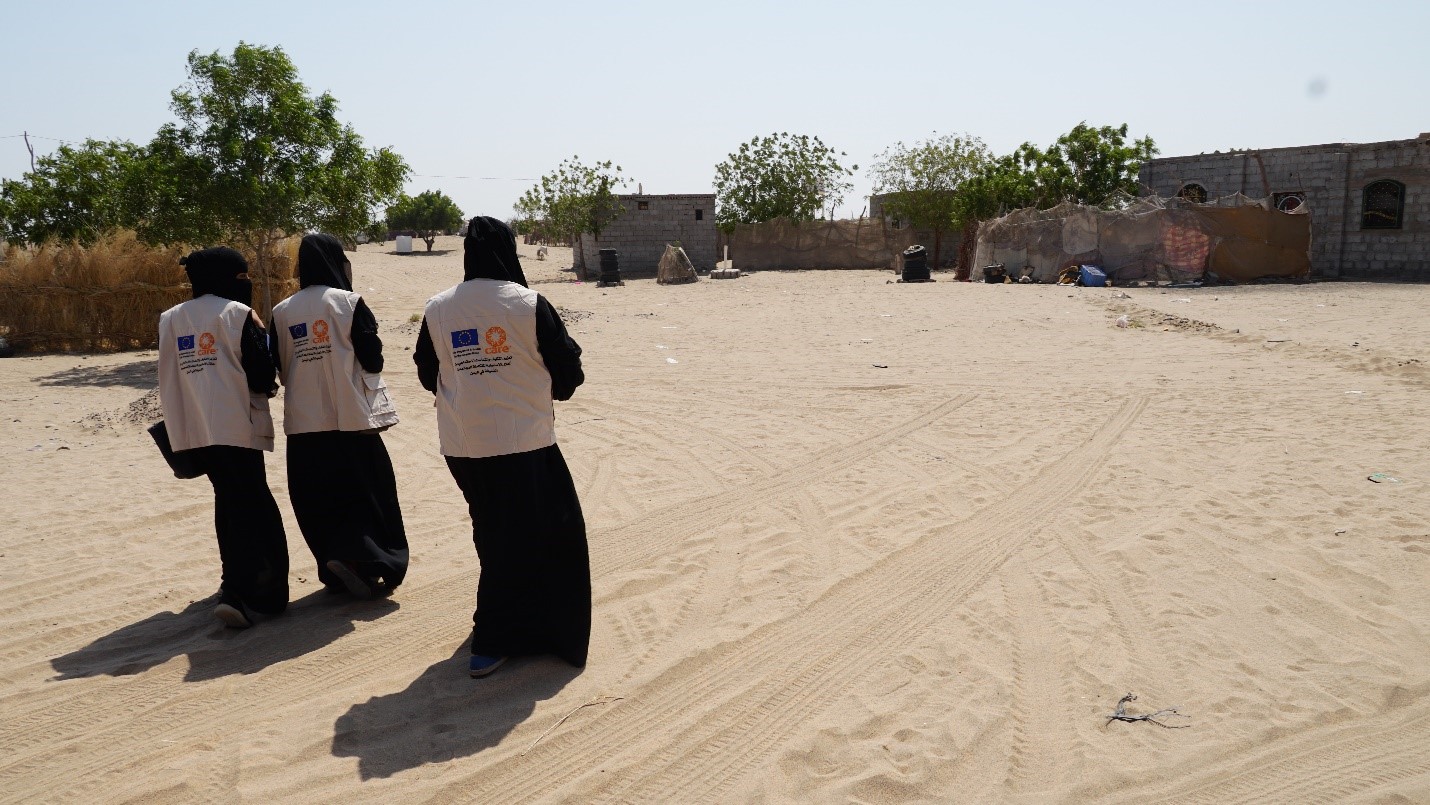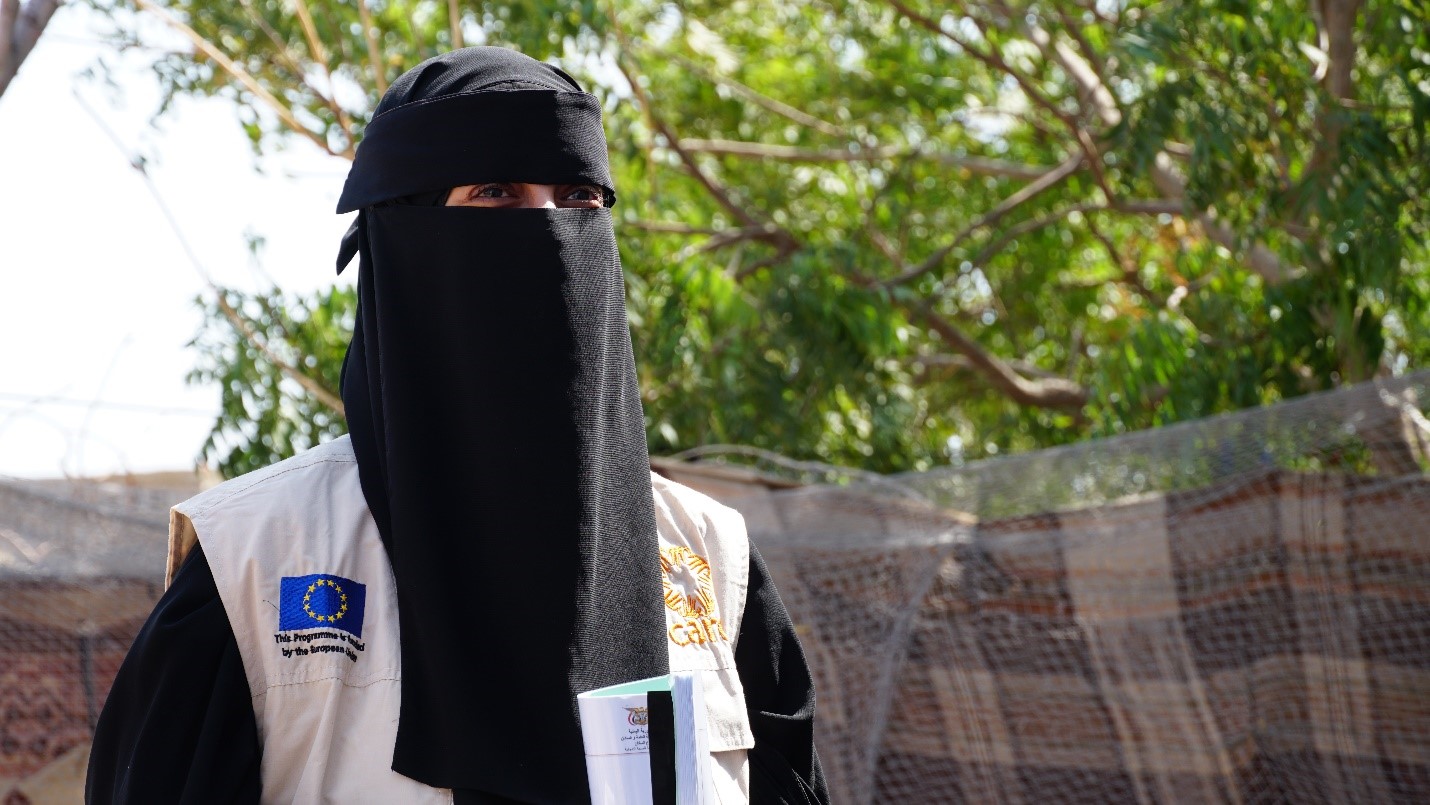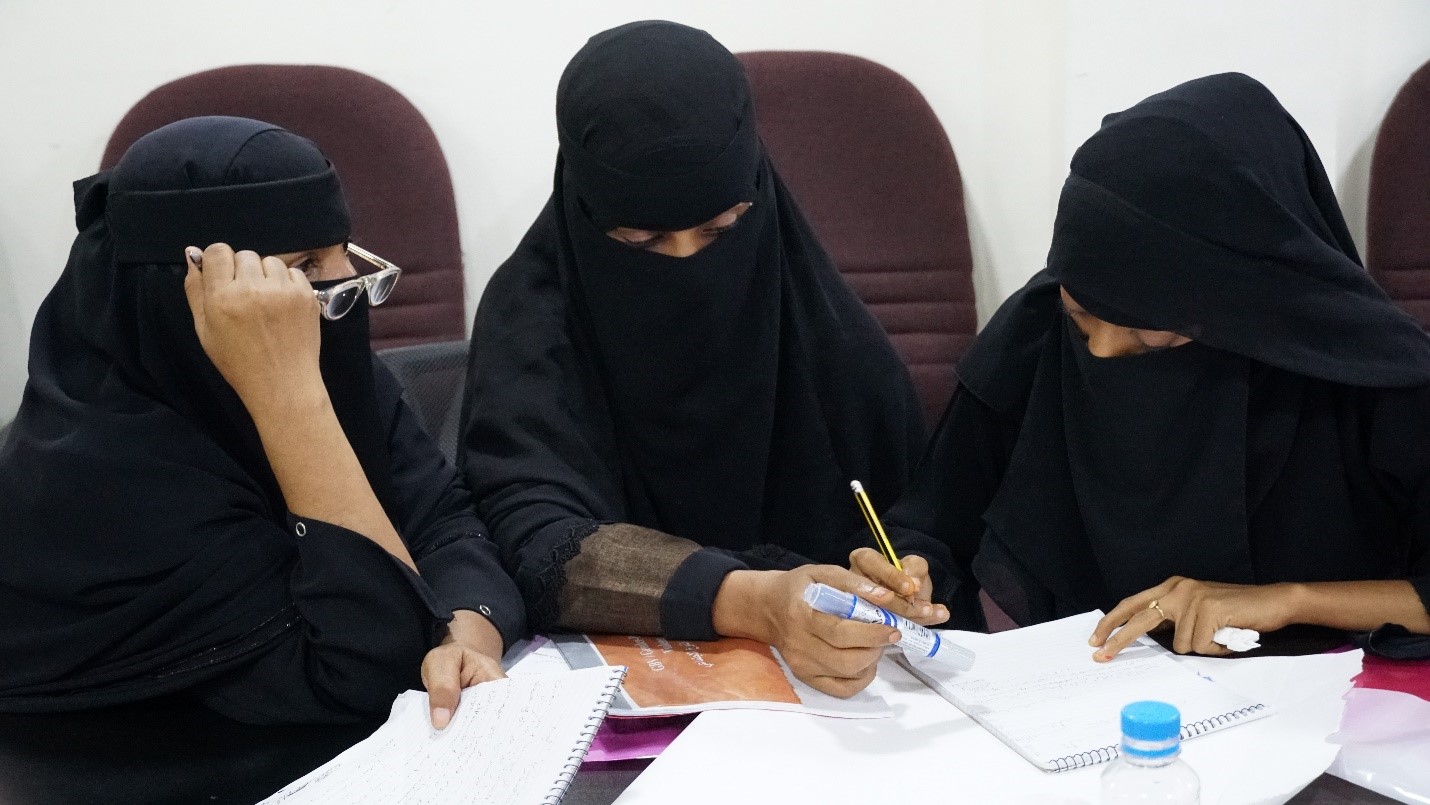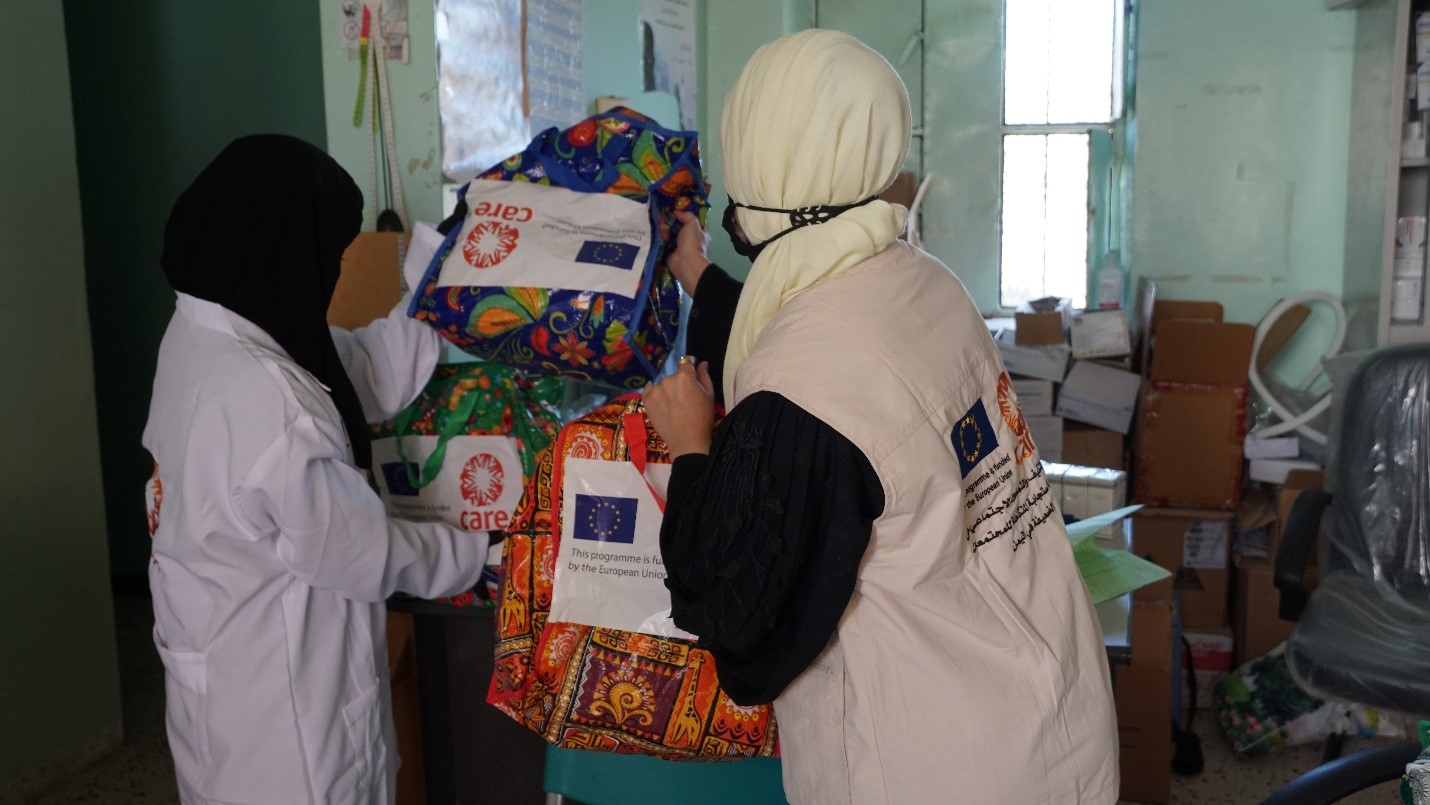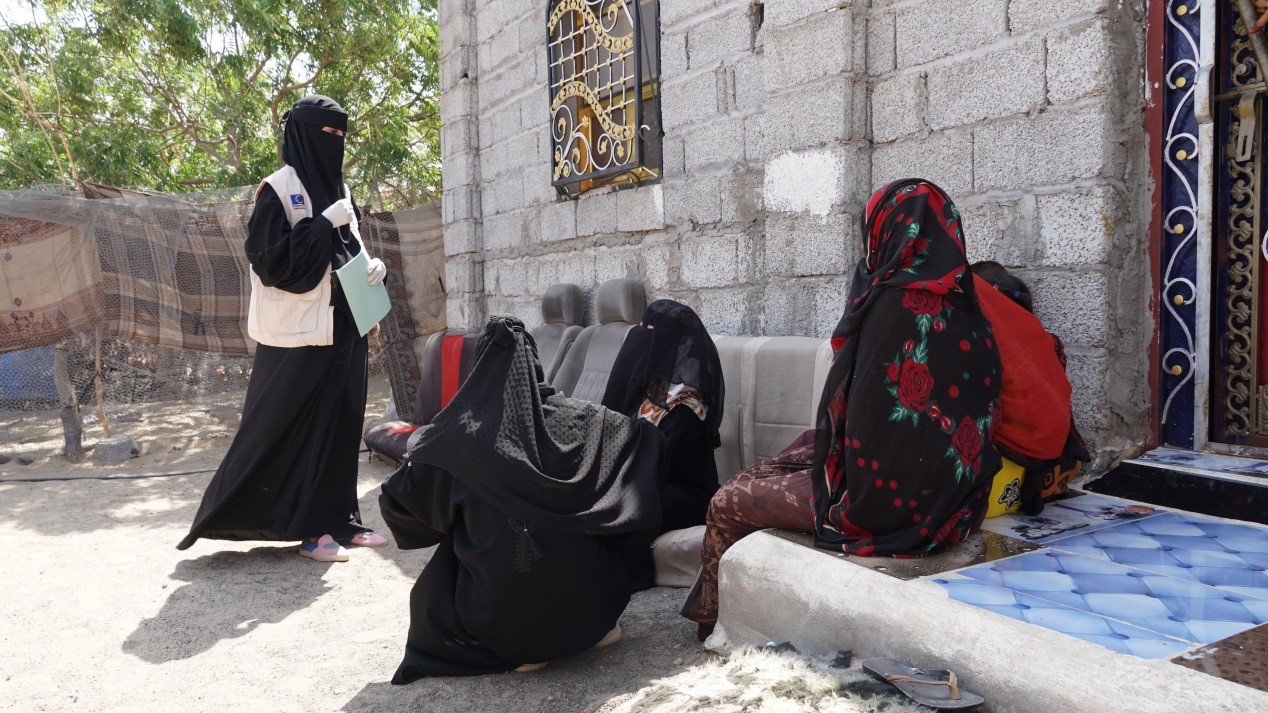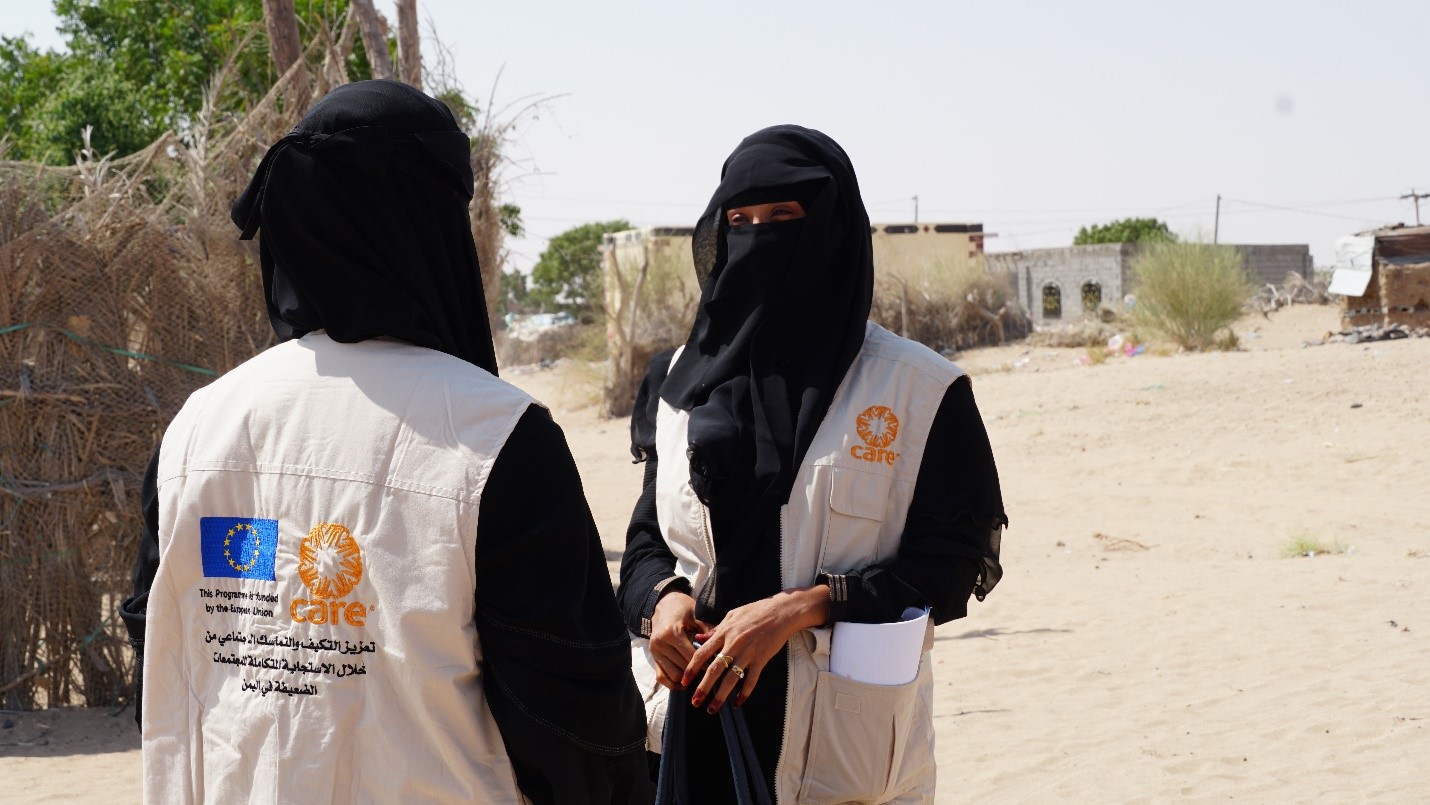Nour and Omina are two of the 40 health volunteers who are working hard to raise community awareness about the importance of reproductive healthcare. In addition to home-to-home visits, Nour conducts awareness sessions in her home and on social media to counter misinformation and stereotypes about reproductive health issues.
“Poor practices can cause dangerous complications for pregnant women and their babies,” adds Omina. “I recall how Aisha, a mother from Al-Roeat village in Lahj, suffered from a heavy hemorrhage while delivering at home and sadly lost her baby. After I met Aisha and her husband, the couple’s understanding of reproductive healthcare changed. Now, they periodically visit the hospital to follow up on Aisha’s new pregnancy so she can deliver her baby safely this time.”
Nour, Omnia, and Heba hope all women and babies can receive adequate care to enjoy good health with dignity.
With support from EuropeAid CARE works in partnership with five relief agencies to enhance the resilience and social cohesion of conflict-affected communities in Lahj and Dhamar governorates As part of this partnership, CARE provides a package of integrated health, livelihood, and empowerment interventions.
